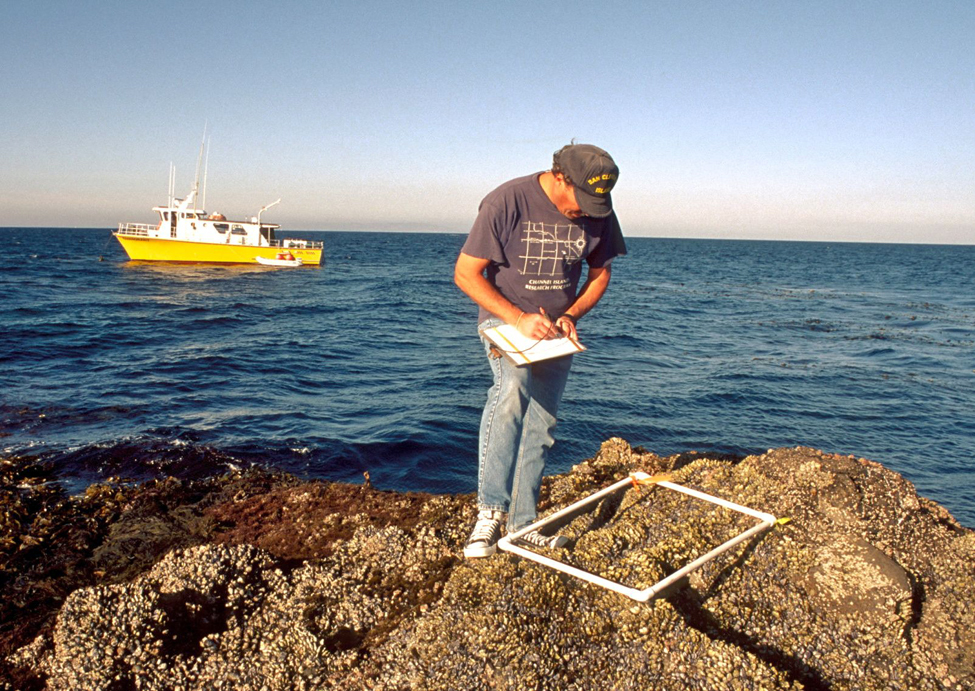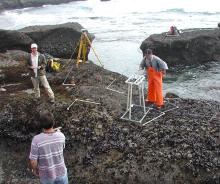
Multi-Agency Rocky Intertidal Network Receives Department of Interior's National Conservation Award

Since 1997, the Multi-Agency Rocky Intertidal Network –– or MARINe –– has been helping scientists and others understand those narrow ecological ribbons where land and sea meet at the coastline. The intertidal shores are home to unique plant and animal communities that have adapted to alternating exposure to water and air.
"Coastal rocky reef life must be robust to survive ever-changing conditions," said Jack Engle, an associate research scientist at UC Santa Barbara's Marine Science Institute (MSI) and coordinator of the MARINe program. "Our research focuses on understanding the ecological health of these special habitats so coastal managers can make appropriate decisions to balance human needs and marine life conservation."
The Department of the Interior has presented a 2012 Partners in Conservation Award to MARINe in recognition of the unique and extensive partnership that has developed among federal, state, and tribal governments, local agencies, universities, and private groups dedicated to the study and management of rocky intertidal shoreline habitats. Engle and other MARINe representatives accepted the award during a ceremony in Washington, D.C. The award was presented by Deputy Secretary of the Interior David J. Hayes.
"The Partners in Conservation Awards offer wonderful examples of how America's greatest conservation legacies are created when communities from a wide range of backgrounds work together," said Hayes. "These awards recognize dedicated citizens from across our nation who collaborate to conserve and restore America's great outdoors, to encourage youth involvement in conservation and to forge solutions to complex natural resource challenges."
MARINe's long-term monitoring program is the largest of its kind, involving 38 organizational sponsors, contributors, and collaborators that monitor rocky intertidal species at over 135 sites on the east and west coasts. In addition to Engle, recipients of the award include Carol Blanchette, an associate research scientist at MSI and a representative from the Partnership for Interdisciplinary Studies of Coastal Oceans (PISCO) –– one of the 38 partner organizations.
"Early on, we realized that tidepool reef communities were affected by a complex combination of daily, seasonal, annual, and decadal influences," said Engle. "To make sense of all this variation, we needed to develop a long-term yet practical survey program that would monitor key species on a regular basis. We have successfully accomplished this by collaborating with numerous organizations and through volunteer efforts, and now have over 135 locations surveyed for up to 20-30 years."
One of MARINe's significant accomplishments has been a greater appreciation of the role of disease in marine species dynamics, including withering syndrome in black abalone and wasting disease in seastars, according to Engle. Another benefit has been to provide baseline data in the event of oil spills, such as those that occurred in San Francisco Bay.
"We also documented ecological effects of harvesting mussels and limpets, as well as the spread of several invasive seaweeds along our coast," he added.
Currently, MARINe researchers are concentrating their efforts on developing intertidal health indicators, evaluating the effectiveness of the new California Marine Protected Areas, and focusing additional efforts on detection of long-term climate change effects.



